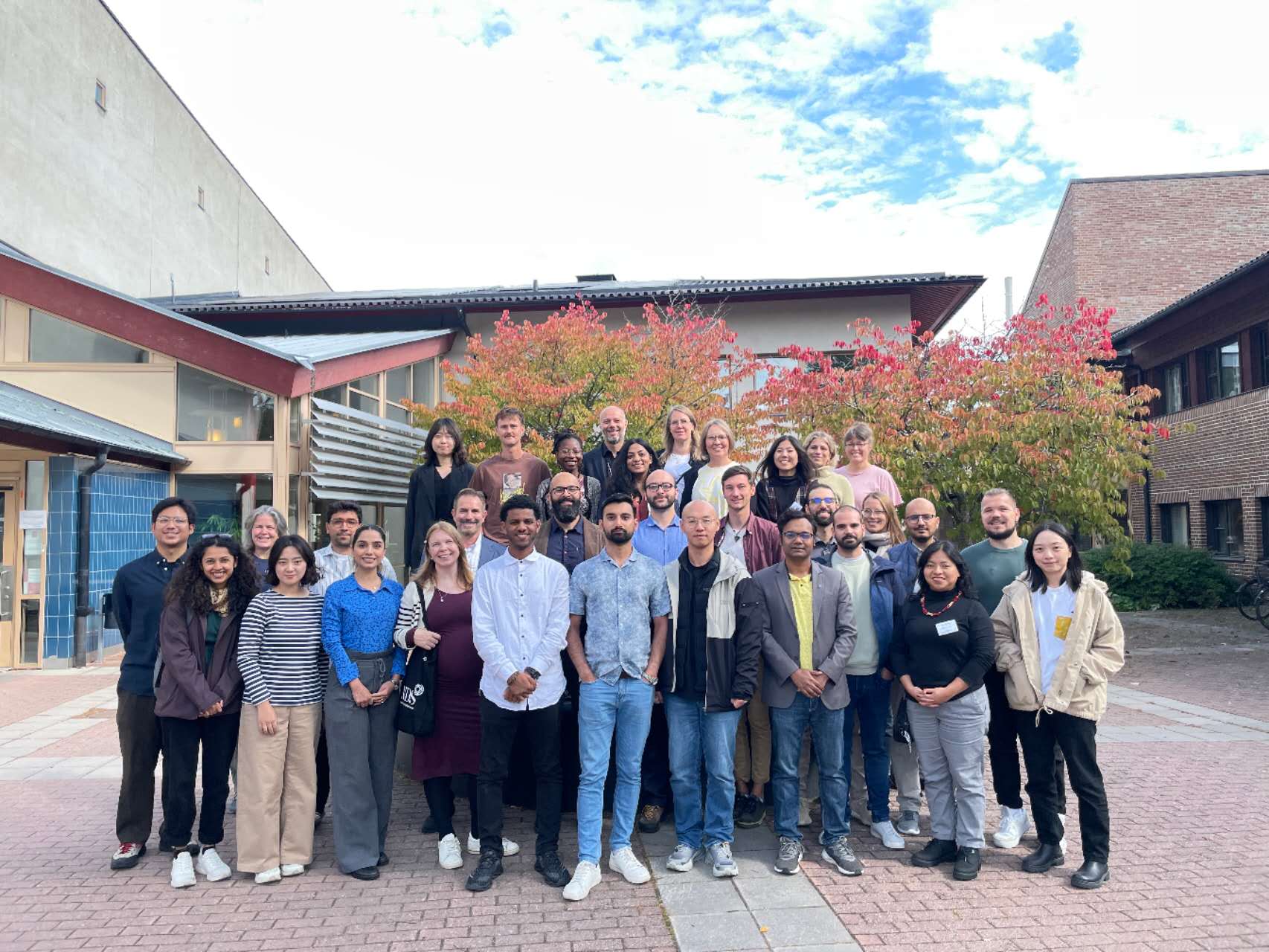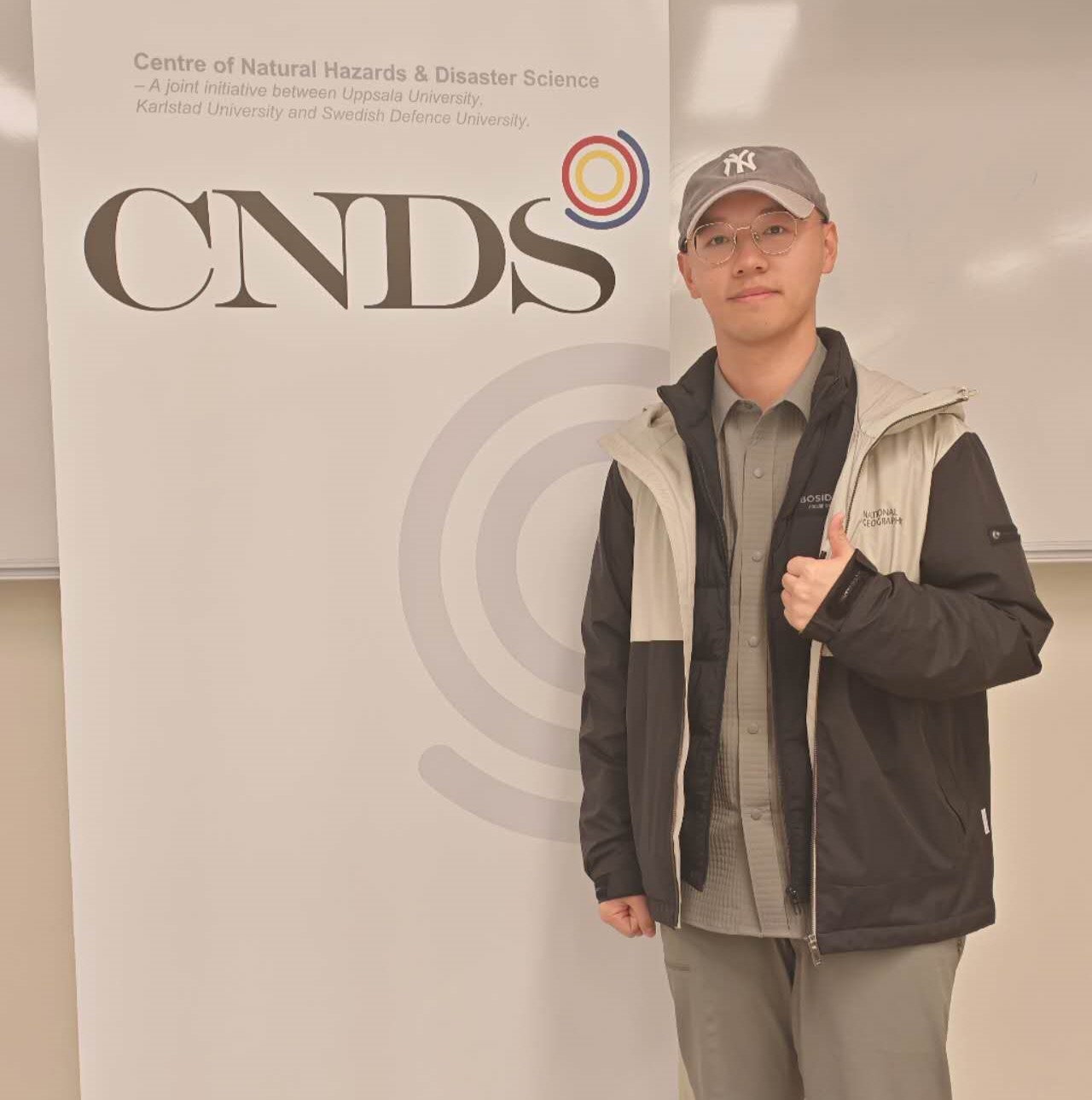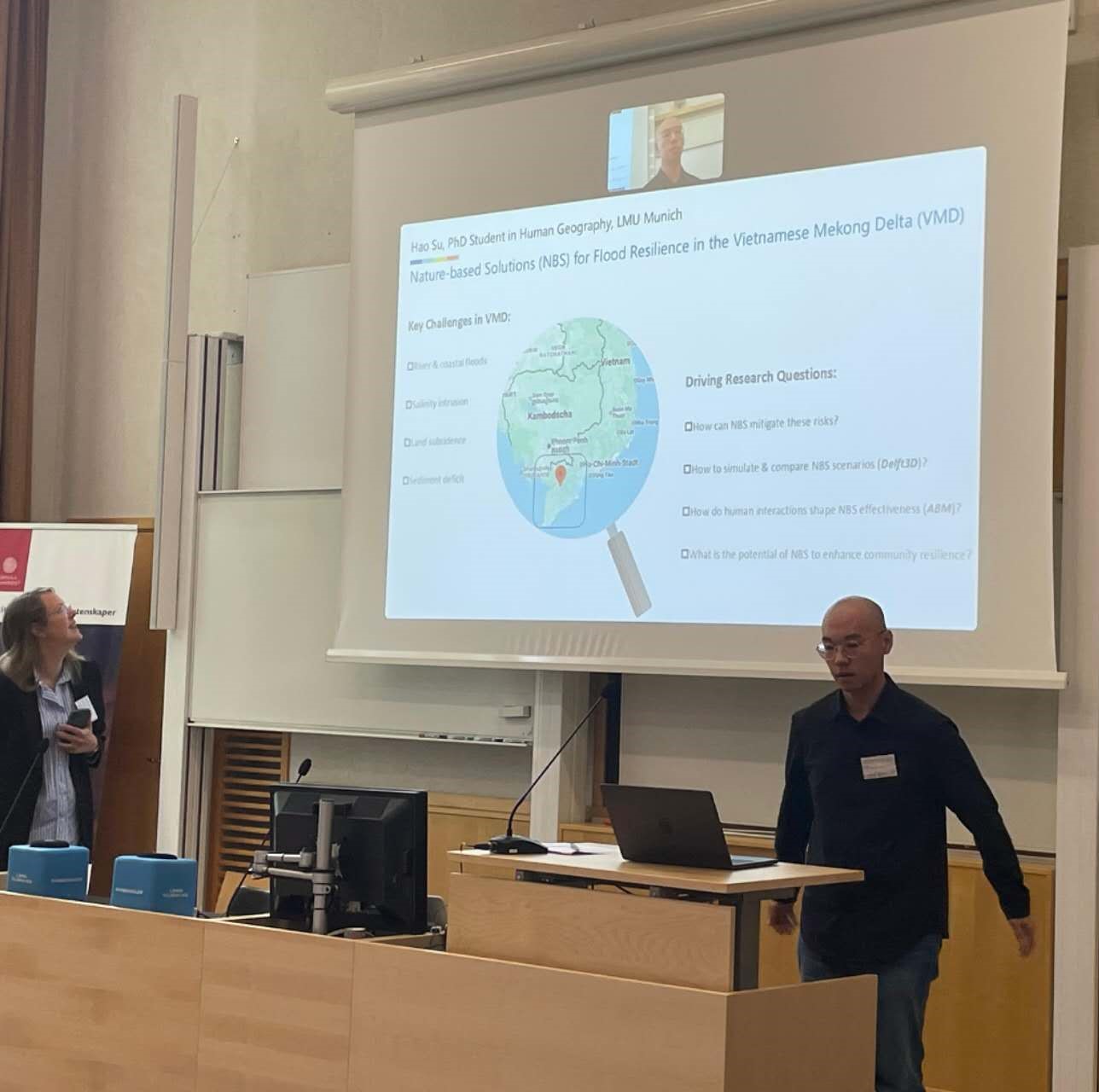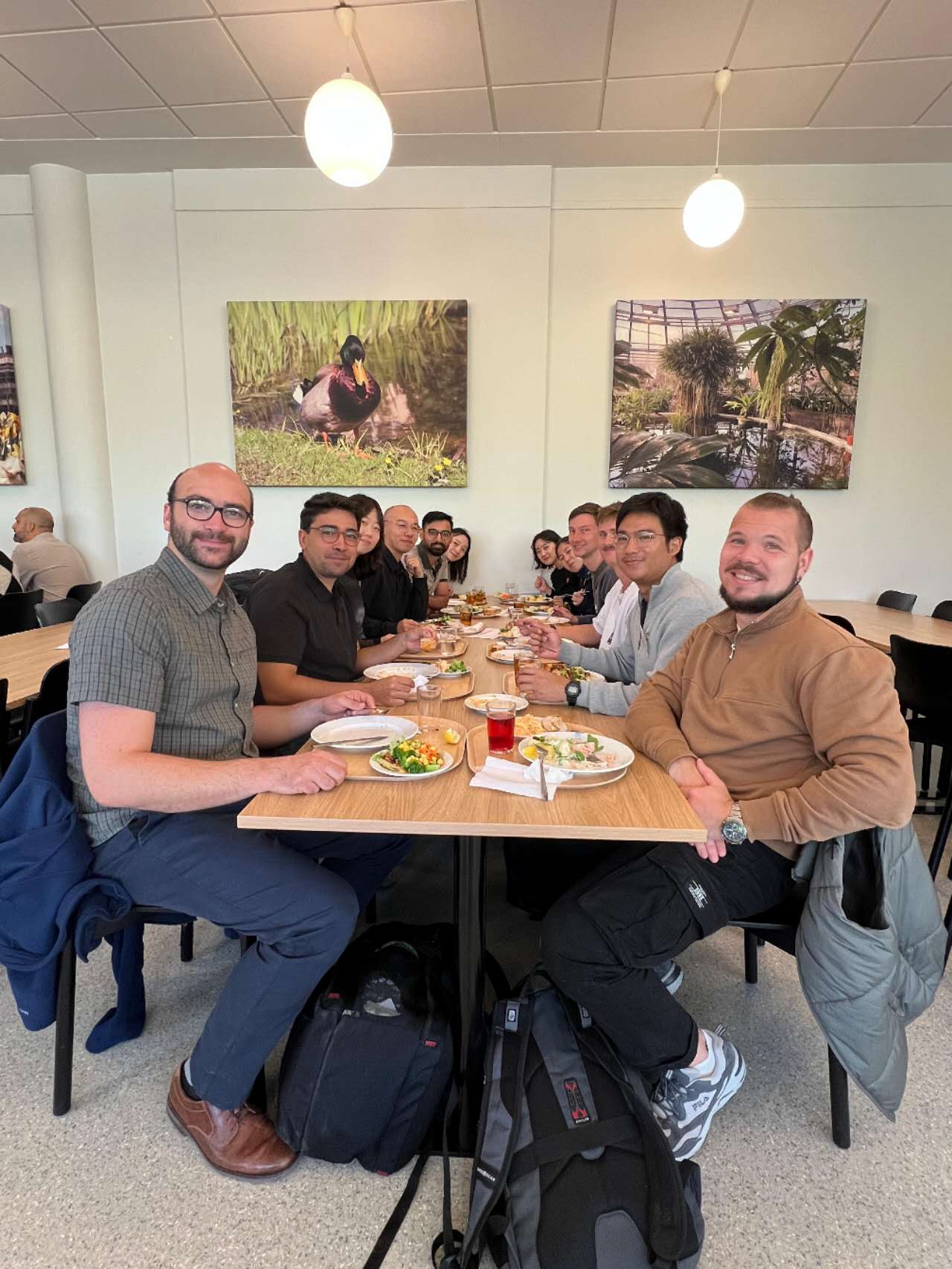STORIES member in the CNDS Summer School 2025 at Uppsala University, Sweden
Mr. Hao Su participated in the CNDS (Centre of Natural Hazards & Disaster Science) Summer School at Uppsala University, Sweden, held on 25–29 August 2025.
The summer school integrates research themes studied within CNDS and aims to deepen understanding of society’s ability to prepare for and cope with natural hazard risks. By bringing together lecturers and students from diverse disciplines, the course provides a platform for lively exchanges and discussions among participants and experts. It offers a unique international forum to explore the complex dynamics of disaster risk reduction (DRR) and creates an excellent opportunity for early-career scientists to expand their networks and engage in interdisciplinary dialogue.
The overall theme of the 2025 edition is “Natural Hazards in the Anthropocene – Adapting to Natural Hazards under Uncertainty.” Over the course of one week, 25 early-career researchers attended lectures covering a wide range of topics, including multi-hazard risk, disaster risk reduction, crisis management, hazard forecasting and warning, and risk communication.
Lecturers represented diverse fields of expertise, including political science, disaster governance, earthquake and volcanic risk, natural system modeling, socio-hydrology, and water management. The program also featured contributions from the Deputy Director General at the Government Offices of Sweden and a researcher from the University of Illinois, USA.
In addition to lectures, participants engaged in workshops and serious games. For example, in one exercise, participants debated disaster aftermath scenarios by taking on different roles. As “city planners,” they explored how to build resilient cities while cooperating with neighboring communities under uncertain risks. As “ministers of agriculture,” they worked on strategies to increase crop production while facing uncertainty such as floods and droughts.
Through these activities, Hao established valuable connections with researchers from the University of Potsdam, University of Osnabrück, IHE Delft, TU Delft, VU Amsterdam, KTH, Newcastle University, and the University of Tokyo, among others worldwide.




